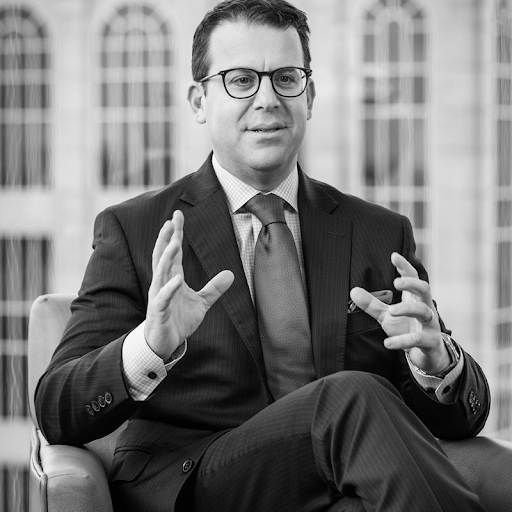Jeremy Seidman, a seasoned investment advisor based in Boston, Massachusetts, possesses an impressive career spanning over two decades in the industry. His journey began at the University of Pennsylvania, where he pursued a dual major in economics and engineering, culminating in his graduation in 1998.

Following his undergraduate studies, Jeremy embarked on further academic pursuits and obtained an MBA from the prestigious Massachusetts Institute of Technology Sloan School of Management. During his time at MIT, he immersed himself in the study of financial management under the guidance of distinguished Nobel laureates and internationally renowned professors. Jeremy attributes his education at both Penn and MIT as the bedrock of his career, instilling in him a profound passion for business and entrepreneurship.
In the early stages of his financial career, Jeremy held a significant position as a Director at Credit Suisse, a global powerhouse specializing in wealth management, investments, and financial services, with its headquarters in Zürich, Switzerland. Presently, Jeremy serves as a Managing Director of Wealth Management at a Wall Street financial services firm, focusing on assisting affluent families with net worths exceeding $10 million. Jeremy’s exceptional achievements have garnered recognition, including being honored as one of Forbes’ “Best-in-State” Wealth Advisors. Moreover, his expertise has granted him the privilege of being interviewed and quoted by reputable publications such as Bloomberg, the Wall Street Journal, and the Boston Business Journal.
Beyond his professional endeavors, Jeremy Seidman dedicates his time to several non-profit organizations, including MIT Sloan, Coaching4Change, and Combined Jewish Philanthropies. In 2002, Jeremy played a pivotal role in co-founding the MIT CFO Summit, an esteemed gathering that annually brings together over 600 of the world’s leading chief financial officers, serving as a premier forum for corporate finance executives. Additionally, Jeremy volunteers on the board of Coaching4Change, acting as a bridge between under-resourced school districts and local colleges, facilitating mentorship programs for a diverse student population. Together with his wife, Lorin, Jeremy actively contributes to Combined Jewish Philanthropies, providing essential food, financial aid, and medical resources to individuals in need across the globe.
In his leisure time, Jeremy cherishes moments spent with his family, particularly outdoors. They delight in activities such as skiing, kayaking, boating, and engaging in endless games of fetch with their beloved Portuguese Water Dog, Ray Ray.
To see more from Jeremy Seidman check out his Medium and Behance!
Transforming Your Leadership Style for Greater Business Impact
Effective leadership is crucial for achieving business success and driving positive organizational change. As the business landscape evolves, leaders must adapt their styles to meet new challenges and maximize their impact. Transforming your leadership style can empower you to inspire and motivate your team, foster innovation, and create a culture of growth. Here are some practical strategies to help you transform your leadership style and achieve a more significant business impact.
- Embrace a Growth Mindset:
To transform your leadership style, start by adopting a growth mindset. Embrace the belief that you and your team can continuously develop and improve. Encourage a culture of learning and innovation, where mistakes are seen as valuable opportunities for growth. By fostering a growth mindset, you create an environment that inspires creativity and encourages your team to take risks and explore new ideas.
- Develop Emotional Intelligence:
Emotional intelligence (EI) plays a pivotal role in effective leadership. It involves recognizing and understanding your emotions and those of your team members and using this awareness to guide your actions and decisions. Developing EI enables you to empathize, build strong relationships, and communicate effectively. By actively practicing empathy, active listening, and self-awareness, you can create a more supportive and collaborative work environment.
- Empower and Delegate:
Transformative leaders empower their team members by delegating responsibilities and giving them autonomy. Trusting your team members to make decisions and take ownership of their work boosts their confidence and encourages creativity and innovation. The effective delegation also allows you to focus on strategic tasks and vision-setting, increasing productivity and growth.
- Cultivate a Culture of Feedback:
Feedback is a powerful tool for personal and professional growth. Create a feedback culture within your team where constructive criticism is encouraged and valued. Regularly provide feedback to your team members and encourage them to do the same for you. This open and honest communication fosters transparency, strengthens relationships, and enhances individual and team performance.
- Lead by Example:
Model the behaviors and values you want to see in your team. Demonstrate integrity, resilience, and a strong work ethic. Show a commitment to personal growth and continuous learning. When you embody the qualities you seek in others, you inspire and motivate your team to follow suit.
Transforming your leadership style is an ongoing journey that requires self-reflection, adaptability, and a genuine commitment to growth. By embracing a growth mindset, developing emotional intelligence, empowering and delegating, cultivating a feedback culture, and leading by example, you can transform your leadership style and achieve a more significant business impact. Remember, effective leadership is not just about achieving goals; it’s about creating an environment where individuals and teams thrive, ultimately driving sustainable success for your organization.
